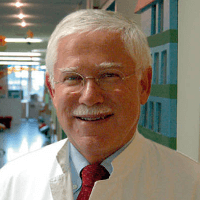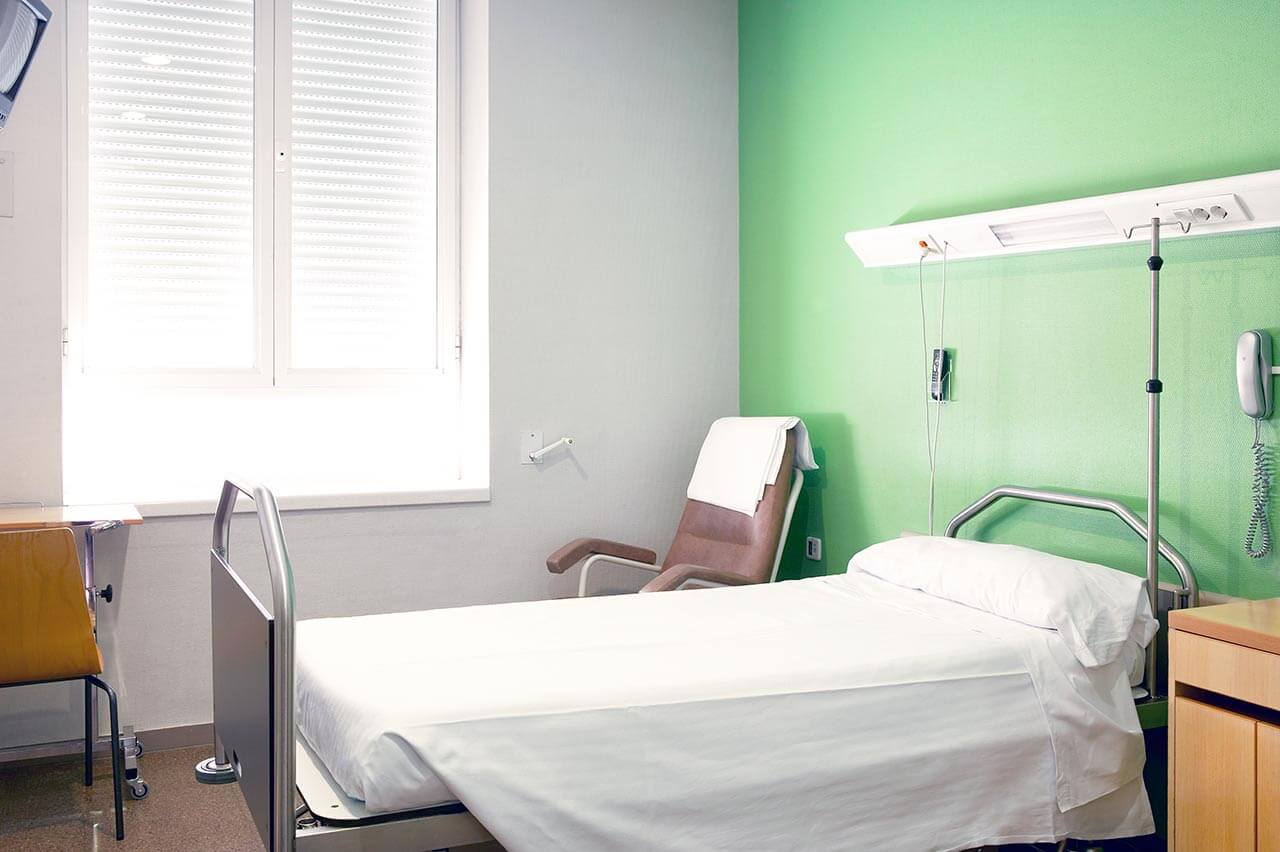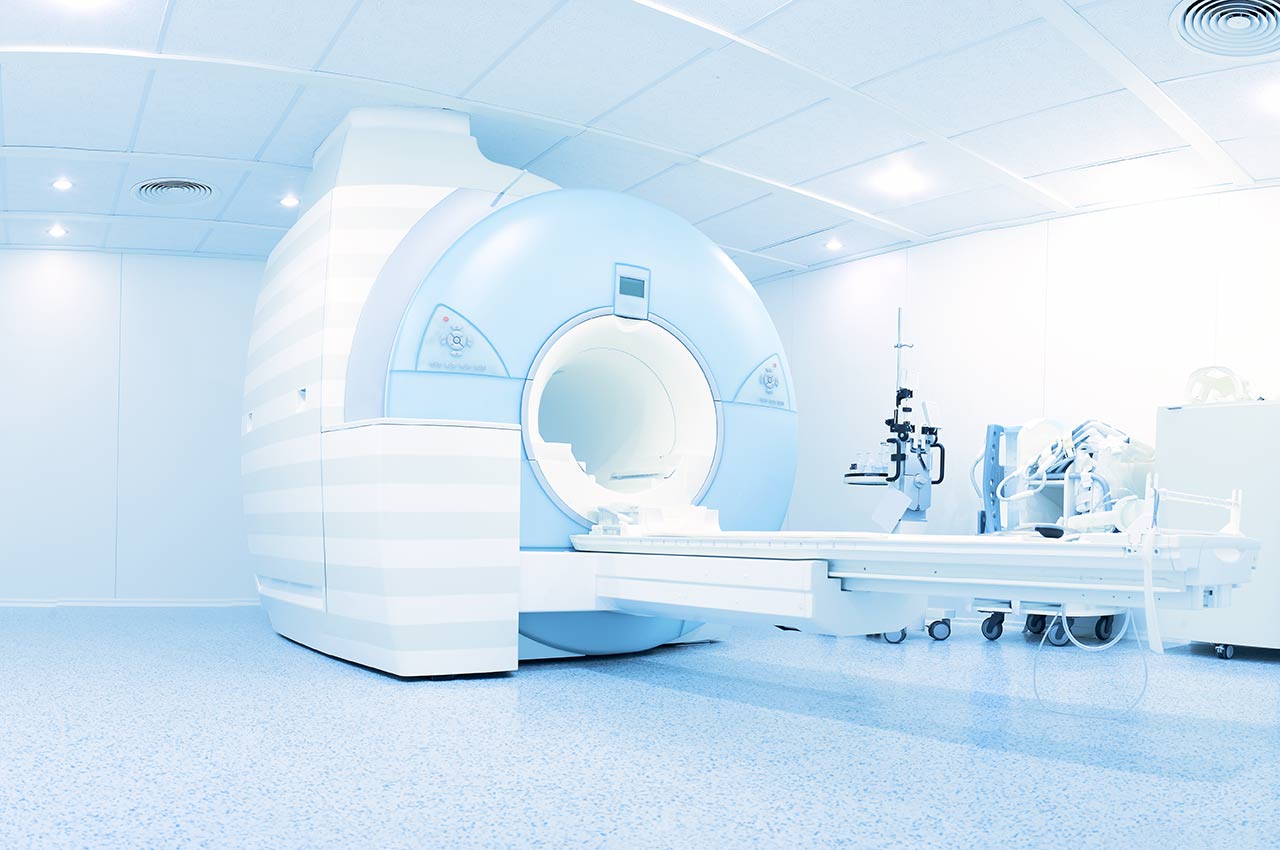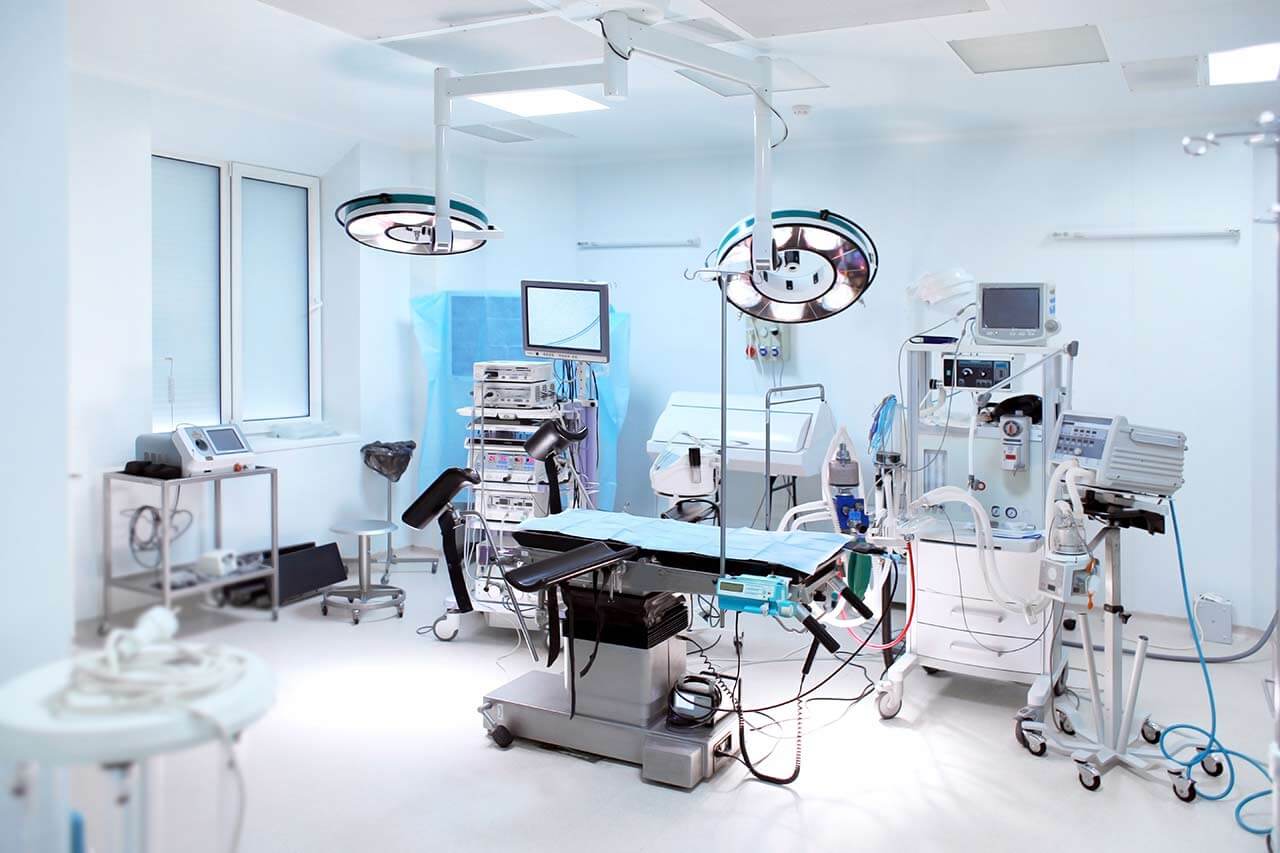
The program includes:
- Initial presentation in the clinic
- clinical history taking
- review of medical records
- physical examination
- laboratory tests:
- complete blood count
- general urine analysis
- biochemical analysis of blood
- TSH-basal, fT3, fT4
- tumor markers
- inflammation indicators
- indicators of blood coagulation
- orbital ultrasound scan
- CT / MRI / X-ray scan of the head and orbit
- 1 course of chemotherapy
- nursing services
- consultations of related specialists
- explanation of individual treatment plan
How program is carried out
During the first visit, the doctor will conduct a clinical examination and go through the results of previous laboratory tests and instrumental examinations. After that, you will undergo an additional examination, including laboratory assessment of liver and kidney function, ultrasound scan. Based on the received results, the doctor will elaborate the chemotherapy regimen. If necessary, related medical specialists will be involved in the elaboration of a treatment regimen (tumor board).
Chemotherapy is carried out as the day hospital procedure, without mandatory admission to the hospital. After the placement of a venous catheter, you will stay in a comfortable ward. An infusion system will be connected to the catheter, through which the required drug or a drug combination will be administered. All drugs are administered by intravenous drip, slowly, so the total duration of the infusion can be up to several hours. All this time, doctors and nurses will monitor your health condition closely.
After the course of chemotherapy, you will stay under medical supervision in the ward for a few more hours. If your general condition is good, your doctor will allow you to leave the hospital. You will receive the medical report with detailed recommendations regarding further treatment. In the future, you will be able to have a distant consultation with your attending physician and schedule the next course of chemotherapy, if necessary.
Required documents
- Medical records
- MRI/CT scan (not older than 3 months)
- Biopsy results (if available)
Service
You may also book:
 BookingHealth Price from:
BookingHealth Price from:
About the department
The Department of Pediatric and Adolescent Medicine at the University Hospital Würzburg offers the full range of diagnostics and treatment of various diseases in children of all age groups, from premature babies of high risk groups to adolescents. The department is one of the oldest pediatric medical institutions in Germany. For 170 years of the successful clinical practice, the department has gained an excellent reputation in the treatment of children and adolescents with serious and rare diseases. The department is headed by Prof. Dr. med. Christian P. Speer.
The department's specialists annually provide their services to 6,500 young patients, while about 30,000 children receive treatment here annually within the specialized outpatient clinics. The high-tech medical equipment, innovative treatment methods, as well as the outstanding experience and knowledge of the department's doctors are the key to the optimal medical care adapted to the particular diagnosis and needs of children.
The department has the Level I Perinatal Center, which provides the competent care for premature babies from the high-risk group (whose weight is less than 500 grams at birth). Also, special attention should be given to the Stem Cell Transplant Center, which meets the European and American quality standards, due to which it has the prestigious JACIE certification. The Cancer Center of the department, which specializes in the treatment of various types of cancer in children is among top ten largest medical institutions of this kind in Germany. In addition, the department is part of the network of the Reference Centers for Rare Lung Diseases.
The service range of the department includes:
- Medical care for newborns and premature babies
- Intensive therapy (for example, in life-threatening diseases of the central nervous system, severe infectious diseases, injuries, poisonings)
- Diagnostics and treatment of blood disorders and oncopathology (for example, leukemia, lymphomas, brain tumors, etc.)
- Stem cell transplantation in children and adolescents from 0 to 21 years old (in cancer, blood disorders, immunodeficiencies, and some rare metabolic diseases)
- Diagnostics and treatment of lung diseases, allergies
- Cystic fibrosis
- Bronchial asthma
- Malformations of the respiratory tract
- Ciliary dyskinesia
- Pulmonary fibrosis
- Bronchiectasis
- Insect venom allergy
- Allergic rhinitis
- Diagnostics and treatment of heart diseases, congenital heart defects
- Diagnostics and treatment of infectious diseases
- Acute and chronic infectious diseases (for example, pneumonia, bronchitis, meningitis, osteomyelitis, urinary tract infections, the infections of the gastrointestinal tract and skin, abscesses)
- Hepatitis, herpes, cytomegalovirus, HIV, tuberculosis, fungal and parasitic infection
- Bacterial infections
- Diagnostics and treatment of immunodeficiencies, diseases of the immune system
- Diagnostics and treatment of diseases of the gastrointestinal tract
- Chronic inflammatory bowel diseases (Crohn's disease, ulcerative colitis)
- Liver diseases (chronic hepatitis, autoimmune liver diseases, alpha-1-antitrypsin deficiency, Wilson's disease, bile duct pathologies)
- Gastroesophageal reflux disease (heartburn)
- Achalasia cardia
- Celiac disease
- Eating disorders and developmental delay in children with chronic diseases
- Short bowel syndrome
- Diagnostics and treatment of kidney, urinary tract
- Urinary tract infections
- Congenital malformations of the kidneys and urinary tract
- Vesicoureteral reflux
- Bladder dysfunction (for example, incontinence)
- Kidney failure, for example, cystic kidney or glomerulonephritis
- Kidney lesion in other diseases
- Arterial hypertension
- Chronic kidney failure
- Diagnostics and treatment of diabetes mellitus, metabolic disorders
- Diagnostics and treatment of hormonal disorders in children (for example, growth disorders, thyroid dysfunction, disorders of sexual development)
- Diagnostics and treatment of rheumatological and bone diseases
- Diagnostics and treatment of neurological diseases, intellectual development disorders
- Epilepsy
- Headaches
- Multiple sclerosis and other inflammatory diseases of the central and peripheral nervous system
- General neurological disorders
- Movement disorders and neuromuscular diseases
- Diagnostics and treatment of other diseases in newborns, young children, and adolescents
Curriculum vitae
Prof. Dr. med. Christian P. Speer is a Member of the Royal College of Physicians of Edinburgh. He studied Human Medicine at the University of Göttingen. After his doctoral thesis defense, he began his professional medical training at the University Hospital Göttingen, during which he spent nearly two years at the National Jewish Hospital in Denver, USA. In 1986, he was appointed as a Senior Physician and in the same year he was habilitated. Soon he was appointed as the Professor of Pediatrics. In 1994, the doctor became the Head of the Department of Neonatology at the University Hospital Tuebingen, and in 1996 he was elected as a Member of the Royal College of Physicians of Edinburgh. In 1999, he held a position in the Department of Pediatrics at the University of Würzburg.
After the fundamental research on the treatment of infant respiratory distress syndrome with surfactant drugs, his current research activities focus on the role of pre- and postnatal inflammatory mechanisms in the pathogenesis of bronchopulmonary dysplasia. He has published over 300 scientific papers in the international and national journals and is the author of several chapters of books on acute and chronic lung diseases in premature babies and newborns. He is also a Co-Editor of the textbook Speer C.P., Gahr M: Pediatrics, Springer Publishing, Berlin, Heidelberg, New York, 4th edition, 2013. He is the Editor in Chief of the Neonatology Journal (formerly: Biology of the Neonate), Co-Publisher of the Zeitschrift für Geburtshilfe und Neonatologie, and has also worked in numerous editorial boards of the international scientific journals and scientific societies, for example, in research committees.
He has many international awards, for example, in 2004, the doctor received the title of Geoffrey Thorburn Visiting Professor of the Perinatal Society of Australia and New Zealand. In 2005, he held the James Hutchison Memorial Lecture in Hong Kong. In 2006, he received the Chiesi Award for outstanding achievements in Neonatology of the European Association of Perinatal Medicine. Since 2010 to 2012, he was the President of the European Association of Perinatal Medicine. In 2013, the American Pediatric Society recognized him as an Honorary Member for the internationally recognized contribution to Pediatrics. In addition, he was recognized as an Honorary Member of the Russian Association of Perinatal Medicine. In 2014, he became the first German Neonatologist, who received the Maternité Prize of the European Association of Perinatal Medicine.
The Professor is a popular speaker at numerous congresses and symposia in Europe, North and South America, Asia and the Middle East. In addition, he regularly organizes the International Symposium on the Latest Advances in Neonatal Medicine, which has become the largest forum on the clinical science taking place not in America.
In the spring of 2016, together with Prof. Bo Sun from Shanghai, he organized the first international congress, the Neonate – an International Symposium for Asia, Shanghai.
Photo of the doctor: (c) Universitätsklinikum Würzburg
About hospital
According to the FOCUS magazine in 2019, the University Hospital Würzburg ranks among the top national German hospitals!
The hospital is one of the oldest medical facilities in Germany. The centuries-old traditions of first-class treatment are combined with the very latest achievements of modern evidence-based medicine and advanced expert experience. The hospital is the maximum care medical center and covers all fields of modern medicine. The hospital has an impeccable international reputation and treats a large number of patients from other countries every year.
A distinctive peculiarity of the hospital is active interdisciplinary cooperation. A large number of diseases are diagnosed and treated within the specialized centers, which medical teams rely on the unique experience of treatment of a wide variety of clinical cases. For example, such centers include the General Cancer Center, the Stem Cell Therapy Center, the Breast Health Center, the Gastrointestinal Center, the Thoracic Surgery Center, etc. In total, the hospital has more than 40 centers of this kind. Therefore, the patients of the hospital are confident that they will be offered the most relevant treatment in accordance with the very latest medical recommendations.
In addition to the most advanced achievements and methods of modern medicine, the medical team of the hospital makes every effort to create a comfortable, friendly atmosphere, which promotes patient well-being and recovery.
Photo: (с) depositphotos
Accommodation in hospital
Patients rooms
The patients of the University Hospital Würzburg live in comfortable rooms made in a modern design and bright colors. The patient room includes a bed with a remote control, a bedside table with a sliding table, a wardrobe, a TV. The patient rooms have the possibility of Internet connection. The enhanced-comfort rooms are equipped with a safe, a fridge and upholstered furniture.
Meals and Menus
The patients of the hospital are offered a varied and tasty three meals a day. There is a daily choice of several menus, including a dietary one. In case of intolerance to any food, please inform the medical staff about your food preferences in advance. After that, you will be offered an individual menu. Also, the hospital houses the cafes and cafeterias with a wide assortment of drinks, fresh pastries, fresh salads, sweets and other dishes.
Further details
Standard rooms include:
Religion
Christian priests are available for the patients at any time. Representatives of other religions may be requested at any time.
Accompanying person
Your companion may stay with you in your room or at a hotel of your choice during the fixed program.
Hotel
You may stay at the clinic hotel or a hotel of your choice during the outpatient program. Our manager will help you choose the best option.





